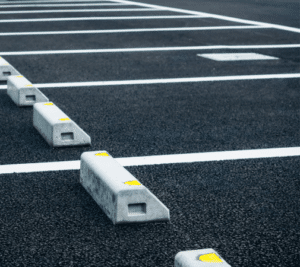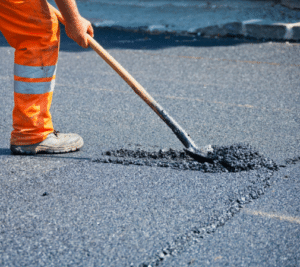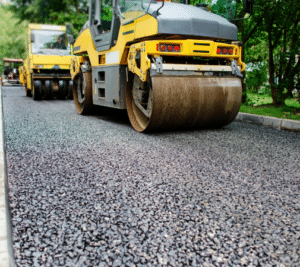Are you considering adding a concrete walkway to your property? Are you wondering how much it will cost and whether it fits your budget? Well, you’ve come to the right place! In this article, we will explore the pricing guide for concrete walkways and provide you with all the information you need to make an informed decision.
Concrete walkways are not only functional, but they can also enhance your home’s curb appeal. However, the cost of installing a concrete walkway can vary depending on several factors. By understanding these factors and their impact on pricing, you can better plan and budget for your project.
Whether you are a homeowner looking to improve your property or a contractor seeking to provide accurate estimates to your clients, this article will serve as a comprehensive guide to understanding the cost of concrete walkways. So, let’s dive in and discover the pricing factors and considerations involved in creating a beautiful and durable concrete walkway.
Benefits Of Installing A Concrete Walkway
Installing a concrete walkway can offer many benefits to both homeowners and contractors alike. Not only are they aesthetically pleasing, but they are also highly durable, easy to maintain, and can navigate different weather conditions better than other materials. Concrete pathways provide excellent traction for people walking on them, making them safe in wet or icy conditions. Concrete walkways require very little maintenance and can last many years with minimal upkeep.
Concrete Walkway Cost Factors
When determining the cost of a concrete sidewalk, several factors must be considered. These include the size and shape of the walkway, the type and quality of the concrete used, and any additional features you may install. Here is an overview of each significant cost factor:
Size & Shape: The size and shape of your walkway will directly impact the overall cost. Longer and wider walkways require more materials and labor, while curved or intricate designs may also increase costs.
Type & Quality: The kind of concrete you choose for your walkway can significantly influence the price. High-quality concrete is usually more expensive but is designed to last longer and be more durable in extreme weather conditions.
Materials: The type of materials used for the walkway will significantly affect how much your project will cost. You can expect to pay more upfront if you opt for more expensive materials, such as stamped concrete. On the other hand, if you choose basic concrete or paving stones, your project costs will be lower.
Labor & Installation: Your sidewalk’s labor and installation costs will depend on the job’s complexity. If you hire a professional contractor, they’ll factor in labor costs for excavation, grading, concrete pouring, and finishing. Hiring a professional can be more expensive but often results in a better-finished product.
Location: The location of your walkway can also impact the cost. If you live in a rural area, it may be more expensive to install due to the distance contractors must travel to reach your site. However, the costs could be lower if you live in an urban area as there are likely more resources and access nearby. Any permits or fees associated with your project should also be factored into the total cost.
Additional Features: If you choose to add any extra features to your walkway (like decorative borders, pavers, or lighting), these will also increase the overall cost.
Concrete Sidewalk Cost Estimates
The total cost of a concrete walkway can vary significantly based on the size and shape of the project, as well as the type and quality of materials used. On average, expect to pay anywhere from $8 to $20 per square foot. If you’re hiring a professional contractor, expect to pay closer to the higher end of that range.
Can You Install A Concrete Walkway Yourself?
Installing a concrete sidewalk yourself can be a great way to save money on your project. On average, you can expect to pay $4 to $10 per square foot for materials and supplies, depending on the concrete type and quality used. If you choose to rent excavation and finishing tools, this will also add to the cost. Additionally, if you are not experienced with laying concrete, hiring a professional to oversee the project is recommended.
Maintenance & Upkeep
Once a concrete walkway has been installed, paying attention to its upkeep and maintenance is essential. Regular cleaning and sealing can help keep the concrete looking its best and protect it from damage due to weather or traffic. Additionally, you may want to consider installing additional features like edging or pavers to ensure the walkway stays in good condition for years.
Design Considerations
When designing and installing a concrete walkway, several elements must be considered. First, consider the walkway’s overall purpose – is it for aesthetic purposes, or will it be used as a heavy-duty pathway? This can help you determine the type and quality of materials you use. You may also consider incorporating decorative features like borders or lighting.
Overall, a concrete walkway is a great way to add value and beauty to your home. By determining the factors that will influence the cost of your project and considering any additional features you may want to install, you’ll be able to create the perfect walkway for your needs.
Installing a concrete walkway can be a great way to add value, beauty, and functionality to your home. With careful consideration of the materials, labor costs, location, and additional features you want to include in your project, you can create the perfect walkway for your needs. For an attractive and durable walkway that will last for years to come, contact Saguaro Asphalt!



